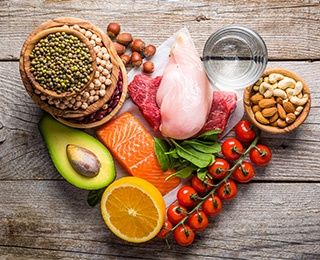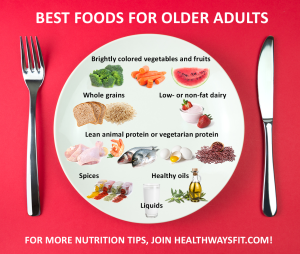As we age, it becomes even more crucial to maintain a balanced diet to support our overall health and well-being. A balanced diet consisting of essential nutrients can help older adults stay active, strengthen their immune systems, manage chronic conditions, and maintain a healthy weight. In this article, we will explore the key components of a balanced diet for active older adults and offer some practical tips on how to achieve it.
Nutritional Requirements for Older Adults
As we age, our bodies undergo various physiological changes that affect our nutrient requirements. Older adults typically need fewer calories due to a decrease in metabolic rate. However, their need for specific nutrients may increase. Some essential nutrients that are especially important for older adults include:
Protein: Protein is crucial for maintaining muscle mass, supporting immune function, and repairing body tissues. Foods rich in protein include lean meats, poultry, fish, dairy products, eggs, legumes, and tofu.
Fiber: Adequate fiber intake promotes healthy digestion, prevents constipation, and reduces the risk of chronic diseases such as heart disease, diabetes, and certain types of cancer. Fiber-rich foods include whole grains, fruits, vegetables, beans, and nuts.
Calcium and Vitamin D: These nutrients are vital for maintaining strong bones and reducing the risk of osteoporosis. Good sources of calcium include dairy products, leafy green vegetables, fortified plant-based milk, and calcium supplements if needed.
Omega-3 Fatty Acids: Omega-3 fatty acids have anti-inflammatory properties, promote heart health, and support brain function. Sources of omega-3 include fatty fish (salmon, trout, sardines), walnuts, flaxseeds, and chia seeds.
Vitamin B12: Older adults often have difficulty absorbing vitamin B12 from food sources and may require supplements or fortified foods. Vitamin B12 is essential for healthy nerve function and the production of red blood cells.
Healthy Meal Planning Tips for Active Older Adults
Now that we understand the key nutrients older adults need, let’s explore some practical tips for planning and preparing balanced meals:
1. Eat a Variety of Foods
Ensure your meals include a diverse range of nutrients by incorporating different food groups. Aim for a colorful plate that includes fruits, vegetables, whole grains, lean proteins, and healthy fats. Experiment with new recipes and flavors to keep your meals interesting.
2. Minimize Processed Foods
Avoid excessive consumption of processed foods, as they tend to be high in unhealthy fats, added sugars, and sodium. Instead, opt for whole, unprocessed foods that are nutrient-dense and offer more health benefits.
3. Stay Hydrated
Dehydration is common among older adults and can lead to various health issues. Make a conscious effort to drink plenty of water throughout the day. You can also include hydrating foods such as watermelon, cucumbers, and soups in your diet.
4. Control Portion Sizes
Pay attention to portion sizes to prevent overeating. Use smaller plates and bowls to help control your portions. Listen to your body’s hunger and fullness cues, and stop eating when you feel satisfied, not overly full.
5. Include Regular Physical Activity
Eating a balanced diet goes hand in hand with staying physically active. Engage in regular exercise or physical activities that you enjoy, such as walking, swimming, yoga, or strength training. Physical activity not only supports overall health but also enhances appetite and digestion.
6. Seek Professional Guidance
If you have specific dietary concerns or health conditions, it may be beneficial to consult with a registered dietitian or nutritionist. They can provide personalized recommendations tailored to your individual needs.
In Conclusion
Achieving a balanced diet is essential for active older adults to maintain good health and vitality. By focusing on nutrient-rich foods and following these practical tips, you can support your overall well-being, manage chronic conditions, and enhance your quality of life as you age. Remember, it’s never too late to start prioritizing your nutrition and making positive changes to your diet.




